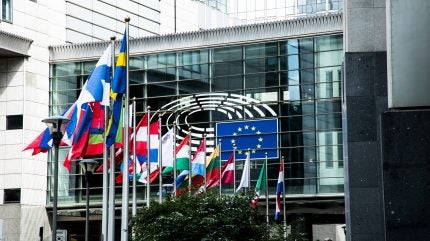
The European Commission (EC) has approved Belgium’s revised state aid measure to extend the lifespan of two nuclear reactors, Doel 4 and Tihange 3, under EU state aid rules.
The decision follows an in-depth investigation into the necessity and proportionality of the measure, which aims to support the reactors’ operation up to 2034.
In 2003, Belgium enacted a nuclear phase-out law requiring the closure of all seven of its nuclear reactors by 2025.
However, due to energy security concerns amid the energy crisis and geopolitical tensions, its government decided in March 2022 to extend the operation of Doel 4 and Tihange 3.
The reactors have a combined electricity generation capacity of up to 2GW.
Belgium notified the commission of its plan to support the reactors’ extension in June 2024.
The commission launched an investigation on 22 July to evaluate the measure’s need, appropriateness and proportionality.
Concerns were raised about the contract for difference (CfD) design and the financial arrangements’ proportionality, which might have overly relieved the beneficiaries of risk including nuclear waste liabilities.
Beneficiaries include Engie’s subsidiary Electrabel, EDF’s subsidiary Luminus, and BE-NUC, a 50/50 joint venture between the Belgian state and Electrabel.
BE-NUC will co-own the reactors with an 89.8% share, while Luminus holds a 10.2% share.
The support measure comprises financial and structural arrangements, including a CfD, a loan and an operating cashflow guarantee.
Liabilities related to nuclear waste and spent fuel will be transferred from Electrabel to the Belgian state for a lump sum of €15bn ($15.6bn).
Belgium addressed the commission’s concerns by modifying the project’s public support package.
To ensure the CfD design’s appropriateness and to minimise market distortion, Belgium transferred economic modulation decision-making to an independent energy manager.
The independent energy manager will sell BE-NUC’s electricity share on the market and is incentivised to ensure efficient modulation use.
The energy manager can trade freely and independently, with competitive tender safeguards.
Belgium also ensured the measure’s proportionality by setting the CfD strike price based on a discounted cash flow model.
The model limits aid to the project’s funding gap, ensuring a market rate of return for BE-NUC’s shareholders.
The market price risk adjustment mechanism shares market price fluctuations between the state and beneficiaries.
Belgium also capped the operating cashflow guarantee to limit state exposure to unexpected outage costs.
Regarding liability transfer, the volume is limited, with a volume adjustment fee for excess waste.



